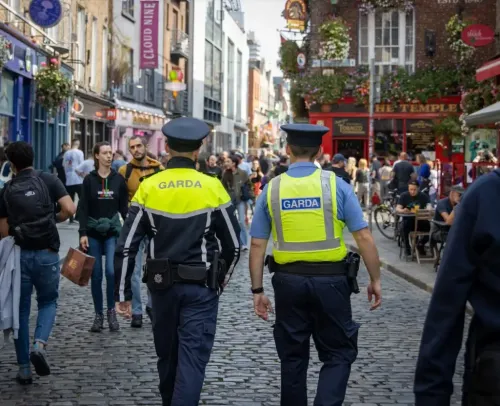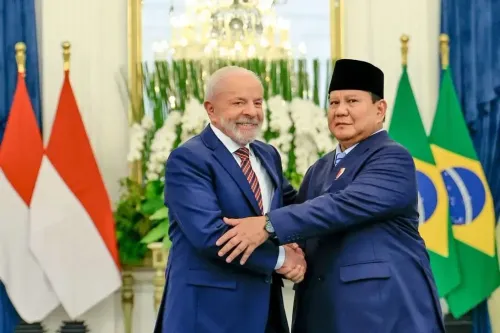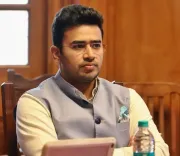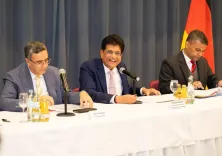Why Did the EU High Representative Praise US Sanctions on Russia?
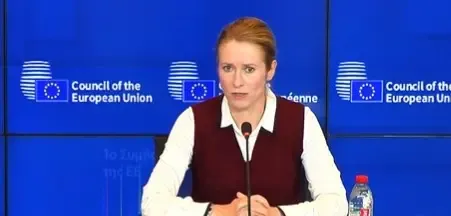
Synopsis
Key Takeaways
- Kaja Kallas supports US sanctions on Russia.
- EU plans to use frozen Russian assets for Ukraine.
- Russia must be held accountable for damages.
- Belgian Prime Minister's conditions threaten the loan.
- EU leaders express confidence in supporting Ukraine.
Brussels, Oct 23 (NationPress) The High Representative of the European Union for Foreign Affairs and Security Policy, Kaja Kallas, expressed her support for the recent US sanctions against Russia, labeling them as an important sign of strength.
Upon her arrival at the EU Summit in Brussels on Friday, Kallas remarked, "We’re very pleased." She emphasized, "This is a significant sign of unity in our stance," as reported by Euro News.
This statement follows the announcement of sanctions by the US targeting Russia's two major oil firms, Rosneft and Lukoil. This marks the initial instance where the Trump administration has implemented economic restrictions on Russia.
Kaja Kallas also defended the EU's initiative to utilize frozen Russian assets, primarily located in Belgium, to facilitate a €140 billion loan to Ukraine. The assets are set to be returned if Russia agrees to provide funds for war reparations.
Kallas declared, "The core message is that Russia is accountable for the destruction inflicted on Ukraine and must compensate for those losses." She added that the loan demonstrates to the US that "we are taking significant measures ourselves."
When queried about concerns from Belgium regarding the loan that could jeopardize the initiative, the EU representative stated, "No nation should shoulder this risk or burden alone."
Meanwhile, European Council President Antonio Costa expressed optimism about the EU leaders supporting the plan to provide a €140 billion loan to Ukraine, as reported by Euro News.
He mentioned, "We will make the political decision to address Ukraine's financial requirements for 2026 and 2027," emphasizing that the loan would enable Ukraine to "continue their struggle for a fair and lasting peace."
He described this as the "most crucial message" for Russia, stating, "Russia must realize they need to cease the killing of civilians in Ukraine."
Earlier, Belgian Prime Minister Bart De Wever warned that he would obstruct the loan to Ukraine unless his three conditions were satisfied. De Wever's conditions include the "complete mutualization" of risks, including legal actions from Russia, assurances that "every member will contribute" should the assets be unfrozen, and a requirement for all European nations holding Russian sovereign assets to partake in the repayment obligation.


